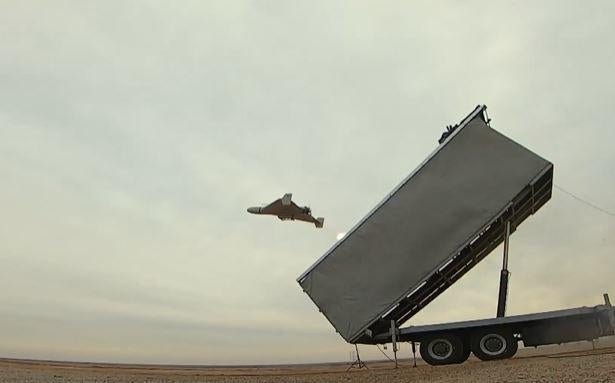HE LOOKS more like a teenager playing soldier than a would-be warlord: his ballistic helmet too big for his head, his assault rifle too spotless. His militia calls itself the Popular Forces, a lofty name for a group led by one of Gaza’s least popular men: his own family has disowned him.

Yasser Abu Shabab promises to wrest control of Gaza from Hamas, the militant group. That is aspirational, to say the least. He has only a few hundred fighters at his disposal; Hamas has thousands. His group controls bits of turf in Rafah and Khan Younis, two ruined cities in southern Gaza. It is hardly a juggernaut. Yet it has nonetheless found a powerful patron.
Read all our coverage of the war in the Middle East
Earlier this month Israel revealed that it was supplying the Popular Forces with light weapons, such as AK-47s. It has given the militia licence to operate in parts of Gaza that would otherwise be off-limits to Palestinians. Some Gazans also wonder if the group is receiving advice and funds from the Gulf: its media output seems too polished to be home-grown.
Israel does not think Mr Abu Shabab will one day rule Gaza—far from it. Instead it hopes that he can chip away at Hamas’s rule and, perhaps, encourage others to do the same. But its own history in Gaza suggests how that plan might go wrong.
Rumours about Israeli support had circulated for weeks. They were confirmed after Avigdor Lieberman, an opposition MP and former defence minister, condemned the policy in a social-media post. Israel’s prime minister, Binyamin Netanyanu, “is transferring weapons to clans identified with Islamic State [IS]”, he wrote on June 5th. His revelation forced Mr Netanyahu to acknowledge the policy, albeit indirectly: “Israel is acting to defeat Hamas in various ways,” he said.
Mr Lieberman was not the only critic to accuse the militia of links to IS. Hamas and its propagandists have made similar claims. There is no evidence, though, that Mr Abu Shabab has sworn any formal allegiance to that jihadist group. He calls himself a Palestinian nationalist and accepts Israeli help to fight other Muslims, which would be anathema to the transnational jihadists of IS, who aim to erase borders and establish a caliphate.
His Bedouin tribe, the Tarabin, has long been involved in smuggling between Gaza and Egypt (it has members on both sides of the border). A decade ago, that meant it worked with IS to transport guns to Gaza. The jihadists helped Bedouin smugglers cross territory they controlled on the Sinai peninsula and kept a share of the guns. But those were opportunistic ties. In 2017 IS, which believes smoking is contrary to Islamic law, started to attack Bedouin cigarette-smugglers on Sinai. The Tarabin eventually joined forces with the Egyptian army and fought against the jihadists.
Since the Gaza war began in October 2023, Mr Abu Shabab has found a new business. The UN says he was the main culprit behind the robberies of humanitarian-aid convoys last year. His gunmen ambushed dozens of lorries and allegedly killed several drivers. Some of his backers portray him as a Gazan Robin Hood, stealing aid to distribute to the poor (he claims he did it to help families in need). He is anything but: his group either kept the stolen aid or sold it at inflated prices, with little, if any, handed out to needy Gazans.
If Mr Abu Shabab’s motives are grubby, they are at least easy to understand. He is neither an ideologue nor a do-gooder; he is a criminal. Joining forces with Israel, at a time when Israel is the only conduit for aid into Gaza, is a logical next step for him.
This is not the first time Israel has tried to play Palestinian groups off one another. In the 1980s it formed a tacit partnership with the Islamic Society, a religious group in Gaza. Israel allowed the group to raise funds and looked the other way when it started to stockpile weapons. This was a calculated gamble. Islamists had never shown much interest in fighting Israel, so perhaps they could be a cudgel against Fatah, the nationalist group that was, back then, Israel’s main threat.
Israel would soon come to regret that bet. A few years later, the group would start a long campaign of suicide-bombings. It would also rename itself the Islamic Resistance Movement—better known by its Arabic acronym, Hamas.
Sometimes the enemy of your enemy becomes your enemy too. That is not to over-egg the prospects for the Popular Forces. Many Gazans despise them as thieves. The Tarabin have publicly cut ties with Mr Abu Shabab, in part because they fear retribution from Hamas. Israel’s new partner in Gaza could become a threat; it could also fizzle and fade.
That Israel must rely on such groups at all is an indictment of its own strategy, or lack thereof, in Gaza. Mr Netanyahu has refused to talk about who might rule the enclave after the war. He rejects any role for the Palestinian Authority, which runs parts of the West Bank. His advisers have mused about Arab peacekeepers and a government of local notables. After almost two years of war, though, they have come up with almost nothing, save for a tiny militia led by a gangster in an ill-fitting helmet.
Sign up to the Middle East Dispatch, a weekly newsletter that keeps you in the loop on a fascinating, complex and consequential part of the world.






![The father (in the blue shirt) of Irfan, one of the flight crew killed when the Air India plane crashed, at the hospital [ Marhaba Halili/Al Jazeera]](https://koala-by.com/wp-content/uploads/2025/06/WhatsApp-Image-2025-06-13-at-12.35.03-AM-1749795965.jpeg)
